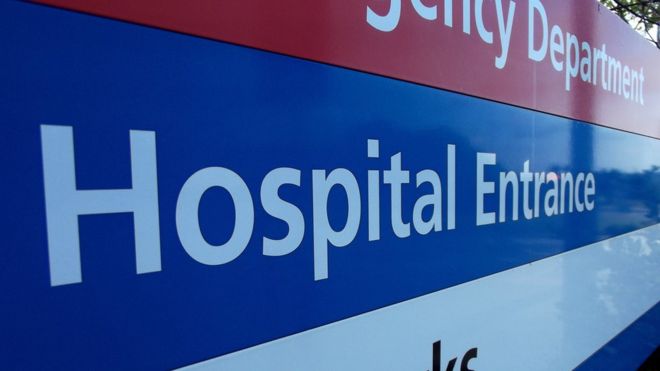NHS facing toughest decade of funding growth in its history

One in ten councils have cut adult social care spending by more than a quarter
April 5, 2017
Chance to put mental health at the heart of NHS services could be missed
May 19, 2017NHS facing toughest decade of funding growth in its history

General election briefing paper sets out independent charity’s calls for greater investment in NHS and social care
Charity, The Health Foundation has called for increased investment in the NHS to halt planned reductions in spending per person over the next two years, in what will be the toughest decade of funding growth in NHS history. In its new briefing published today, the independent charity also outlines how the new government urgently needs to bridge an alarming funding gap in social care, which has resulted in at least 400,000 fewer people in England receiving care.
Social care needs immediate attention from an incoming government.
Despite the extra money allocated to social care in the spring budget, the current system is severely under-funded and unaffordable for people on low incomes who are ineligible for free care. As a result:
- one in 10 older people face future lifetime costs of over £100,000 for their social care needs
- 400,000 fewer people received publicly funded care in 2012/13 than in 2009/10, due to falling funding and local authorities being forced to tighten the eligibility criteria for free social care
- in 2015/16 the number of people aged 65 and over living in England increased by 2% (around 170,000 people) yet the number of them receiving social care fell by 2%
- the social care funding gap – ie the gap between costs and revenue – is projected to reach £2.1bn by 2019/20.
Funding for the NHS in England needs to increase in the next two years
If we are to protect access to care and the quality of services for patients. Under current plans, the next two years will be the toughest years of funding for the English NHS in this spending review period, with spending growth on the NHS lower than any other 10-year period since the founding of the NHS. It states that:
- In 2015/16 NHS trusts posted a combined deficit of £2.5bn, with two thirds of them in the red.
- Spending on health care per person in England is planned to fall in real terms (taking account of inflation) by 0.2% in 2018/19 and by a further 0.2% in 2019/20.
- NHS pay rises will have been capped to a maximum of 1% per annum for nine consecutive years by 2019 under current policy.
Beyond 2020, the pace of funding growth for the NHS and social care system will need to accelerate
Taking a greater share of GDP. This will be necessary to keep pace with the increasing and ageing population, rising chronic disease levels, meet public expectations for health care and fund new technologies and medical advances. It states:
- With the UK economy expected to grow at an average rate of 2.4% a year (when accounting for inflation), the budget for the NHS in England would need to increase by at least £33bn to maintain share of GDP to around £160bn in 2031/32 in today’s prices.
- When assessing the long-term financial pressures facing the NHS, the Office of Budget Responsibility’s (OBR) central estimate for health care in the UK shows funding pressures growing by over 4% a year, accounting for inflation, between 2021/22 and 2031/32 – significantly higher than their projection for UK economic growth – requiring an extra £68bn investment.
The briefing also calls for an independent financial body for the NHS to be established, similar to the OBR, to lay out the long-term financial outlook for health and social care, as recommended by the House of Lords’ committee on sustainability.
Despite the financial pressures the NHS is under, the briefing also highlighted that in recent years the NHS has become more productive, and has seen higher productivity growth than in the wider economy. But there is still room for improvement. Lord Carter of Coles’ review of acute hospital productivity found large variations across the NHS and identified £5bn of potential efficiency savings.
Anita Charlesworth, Director of Research and Economics at the Health Foundation, said:
‘Years of austerity have left the NHS and social care sector in an increasingly perilous financial state. Government funding plans are not keeping pace with demand and cost, and, as a result, these vital services are showing increasing signs of serious strain. Health and social care are vital public services that all of us rely on in times of need. We’ve seen years of funding volatility – going from feast to famine and back again – which is damaging for the long-term planning of services.
‘NHS providers are struggling to manage cost pressures and budgets are increasingly being squeezed. Capital budgets continue to be raided, meaning three years in a row funds for long-term investment have been used to pay for the day-to-day running costs of the NHS. As a result, NHS trusts haven’t been able to invest in modernising equipment and facilities. In the longer term it is a false economy, as facilities that are old and in poor repair cost more to run.
‘Whatever the outcome of the General Election, there are big challenges ahead for the health and care system. If we are to deliver the quality service people expect, funding will need to rise – not just in the short term – but year on year. Our social care system is widely recognised as inadequate and unfair and needs a fundamental reform. The NHS model is not broken; all the evidence is that a tax funded system has substantial advantages in terms of efficiency and fairness. But however efficient it is, the health service still has to be resourced properly. If we want the NHS to keep up with medical advances and meet the changing needs of an ageing population, spending will need to rise.’


